| Umělec magazine 2004/1 >> Transmediale 04 – Art as Downright Babbling and Political Failure | List of all editions. | ||||||||||||
|
|||||||||||||
Transmediale 04 – Art as Downright Babbling and Political FailureUmělec magazine 2004/101.01.2004 Denisa Kera | info | en cs |
|||||||||||||
|
For a number of years now Transmediale, the Berlin festival of new media and art, has chosen to tag itself with activist watchwords like DIY – do it yourself, Play Global and now this year’s Fly Utopia! The purpose of the festival and several-day-long conferences is to propagate art and activist projects and ideas. In this case the words say nothing about the work and this year’s selection of winning projects in the category of software and interactive art was nothing but a great disappointment.
It is painfully clear that the winners are those whose criticism is a threat to no one — and change in the ways of the world is no where in sight. The truly radical projects never stood a chance, most likely because the jury feared they would land in court. But maybe it was also because the works themselves were noticeably original, something that places great demand on viewers, both from the technical and artistic points of view. Indian artist Shilpa Gupta’s work titled Your Kidney Supermarket won in the category called “interactive.” However upon viewing the work the extremely unpleasant suspicion arises that the award was given for reasons other than artistic quality or politically or technically provocative thought. With its pastel colors this relatively boring installation of some kind of human organ shop looked more like a psychedelic club and the visitor was left to search in vain for the slightest sign of interactivity. Only the organ web shop (http://www.xeno-bio-lab.com/), which the installation was in some foggy way connected to, offered its primitive notion of interactivity — clicking. The human organ shop is a freakish thing, but this pointless installation and on-line “shop” offered nothing more than a feeling of disgust that will only fade away in time. The project was both artistically and technically disappointing. What is even more incomprehensible is that it won over the work by the German group Ligna Radioballet, which displayed an entirely new form of interaction and activism. The Radioballet activist group Ligna, which operates their own radio station, attempts to show new forms of interaction connecting radio, the internet and groups of people in public places. Their performance showed that radio could become a medium of civil disobedience. As a protest against the absurd legal restrictions on various body movements in society, like dancing, they decided to organize a protest in which they transmitted using radio equipment instructions to 300 people at the Hamburg train station on how and when to perform various movements. The result was an extremely peculiar public group ballet performance in which all 300 people moved in tandem, sitting down, hand movements, facial expressions. The other work that made it into the narrow selection of interactive art was Home Dictate by Ivor Diosi. His artistic modification of the game Unreal Tournament altered not only the concept of interaction between the user and the game, but also criticized political rhetoric and language used as an instrument of power. The interaction here actually imitates the ways in which speeches are capable of controlling the masses through political rhetoric. The user “communicates with,” or controls a group of avatars by playing with words and voices. When words like “nation,” “war” and “blood” come up in a speech, one group of avatars begins to mercilessly slaughter the other. The dark world of Ivor Diosi is actually a kind of mirror of today’s world ruled by the media, where human society reacts in a very similar way to words like “terrorism,” “axis of evil” and so on. In this “dictate” of evil, you can experiment with speeches by various politicians, including George Bush, Adolf Hitler, Martin Luther King and Václav Havel, and discover the degree of good or evil each word manifests. It may seem at times that artistic and political projects such as these offer nothing more than irony in their effort to change the world. But as the P2P technologies and other software show, “digital communism” is not only a utopian idea. The excellent and witty project by http://www.Re-Code.com is a clear example of a Marxist-style take over of production means (codes) by the working class. Part of their web page has been shut down because of an impending lawsuit by the large U.S. chain Walmart, which has simultaneously launched the project into stardom. The site contains instructions on how to buy products in supermarkets and retail shops for a price of your choice. Instructions and applications on the web site show you how to make your own barcode, and then all you have to do is go out and stick them on whatever you want to buy. The project was so successful that a number of commercial chains picked up on what was happening and were naturally outraged. Re-code is currently considering making its own P2P software, which would offer the entire application and database to users on its site. The question is whether in fact the chain stores wouldn’t be better off simply changing their methods of marking the products, rather than shutting down a web site that exposes their weakness. Do we have the right to outlaw technology like P2P applications because so many people use it to illegally copy music and films? Should we outlaw the knife because so many people use them to murder? Of course this logic makes no sense. Prohibiting web sites and certain types of software sets a dangerous precedent which could affect society more adversely than shoplifting. It seems that today every large commercial business which has fallen behind developments in technology tries to prevent others from digging into its ribs. Technology that causes agitation and change — like Re-code.com or Conceptual Crisis of Private Property as a Crisis in Practice http://rolux.net/crisis/index.php, which demonstrated other ways to violate ownership rights — received no awards at Transmediale, despite the fact that the these projects have both attacking power and extremely interesting conceptual screenshot design. Scandalous projects that truly shift art to the center of discussions in society never actually win awards. However in the end these are the projects that will be spoken about. An exception in Berlin was the Chinese experimental film The Red Flag Flies, which took home the award in the category of “image.” The entire film is pieced together from communist slogans and icons from the 1950s and 1960s and images from the “capitalist” reality. The story of the film is based on a strange dialogue of whispering voices asking “existential” questions like, what is good? what is life? and so on and to which a committee voices their response using slogans. The doubting and searching individual screams out self-confident ideology, and the slogans crush his quiet questioning. Chinese art is a constant source of surprise to the Western world. The projects made by artists who have never come into contact with communism appear to have the most trouble getting over communist-capitalist duality. The Red Flag Flies shows the “Utopian” Transmediale that neither capitalism nor communism can answer the question of human freedom and that everything is much more complicated than we are willing to acknowledge. A similar question and the utopia of freedom are set unified against all ideologies. Mainly they should stay with the questions to which no “committee” can offer an answer.
01.01.2004
Recommended articles
|
|||||||||||||
|
04.02.2020 10:17
Letošní 50. ročník Art Basel přilákal celkem 93 000 návštěvníků a sběratelů z 80 zemí světa. 290 prémiových galerií představilo umělecká díla od počátku 20. století až po současnost. Hlavní sektor přehlídky, tradičně v prvním patře výstavního prostoru, představil 232 předních galerií z celého světa nabízející umění nejvyšší kvality. Veletrh ukázal vzestupný trend prodeje prostřednictvím galerií jak soukromým sbírkám, tak i institucím. Kromě hlavního veletrhu stály za návštěvu i ty přidružené: Volta, Liste a Photo Basel, k tomu doprovodné programy a výstavy v místních institucích, které kvalitou daleko přesahují hranice města tj. Kunsthalle Basel, Kunstmuseum, Tinguely muzeum nebo Fondation Beyeler.
|







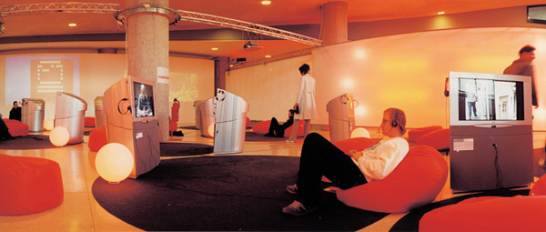
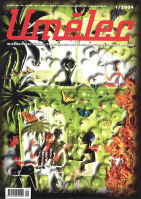


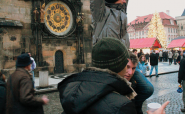
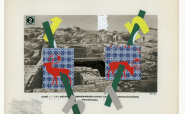

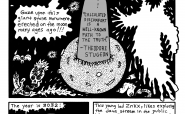












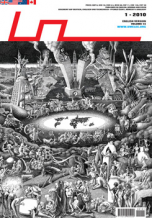
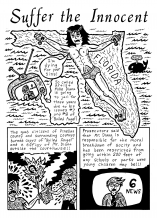
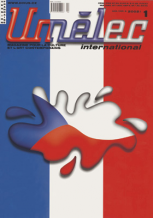



 New book by I.M.Jirous in English at our online bookshop.
New book by I.M.Jirous in English at our online bookshop.
Comments
There are currently no comments.Add new comment